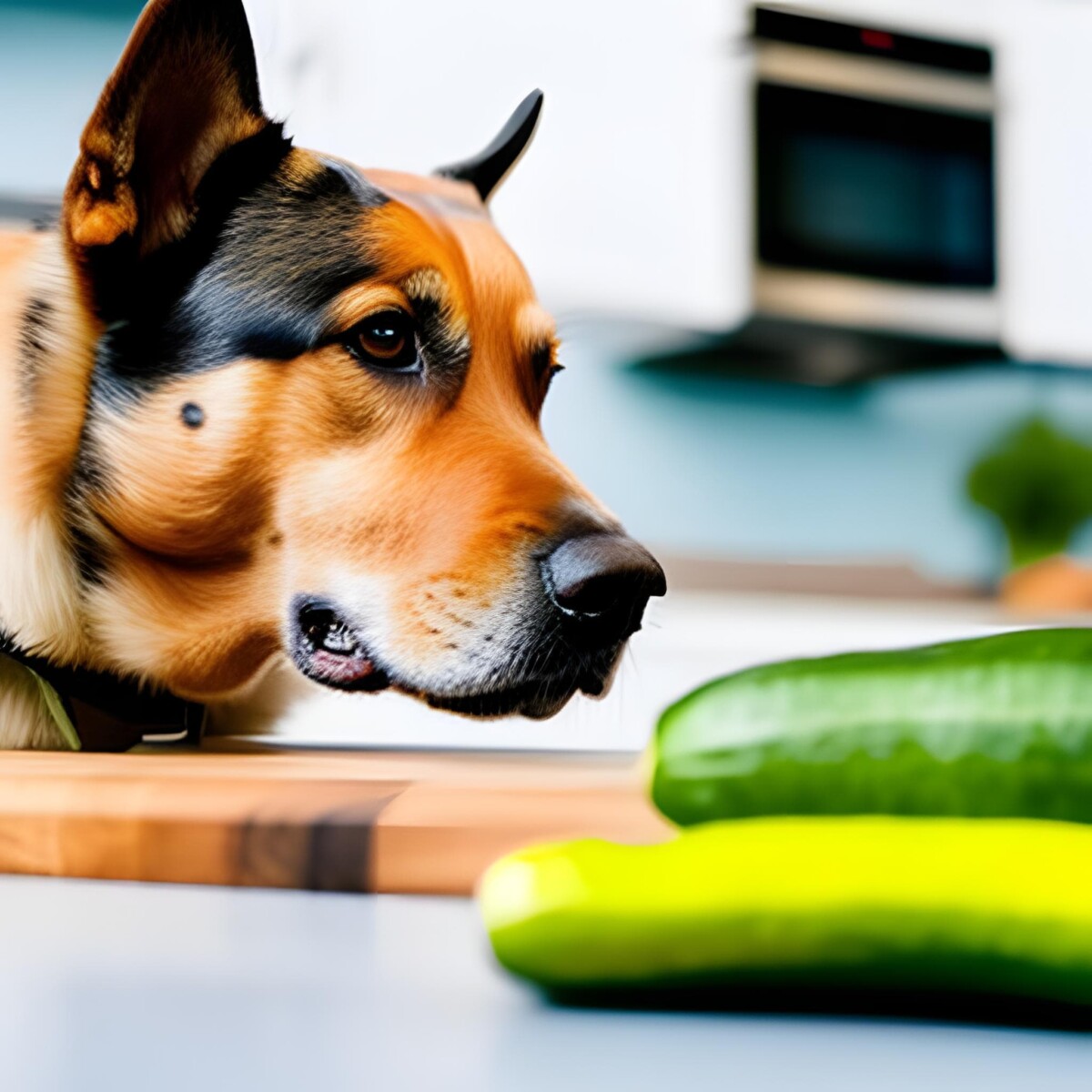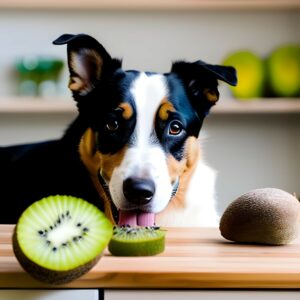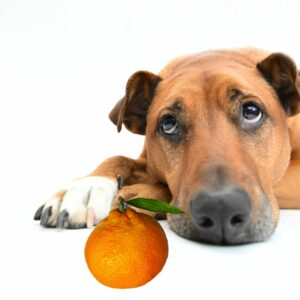If your dog is anything like mine, you might find yourself Googling safe foods for dogs daily.
Dogs are curious and trust you with their lives, so when they see you eat something, they want it too.
But can dogs eat zucchini?
Short answer yes, but there is that but…
So let’s talk about when and how to feed zucchini.
Can dogs eat Zucchini?
Yes. Zucchini is safe for dogs in moderation.
Zucchini is packed with nutrients: fiber, vitamins, and minerals. Dogs on a well-balanced diet usually get all the nutrients they need from their regular food unless they have a condition that affects nutrient absorption.
Your dog doesn’t necessarily need vegetables for their health, but dog-friendly veggies can be a great alternative to high-calorie treats.
A cup of raw zucchini contains only about 20 calories. Fat and cholesterol are low so it won’t lead to weight gain. This makes it a fantastic reward, especially for dogs who need to manage their weight.
Can Dogs Eat Zucchini: Table of Contents
Health Benefits of Feeding Zucchini to Dogs
The vitamins and minerals in zucchini can support their immune system, promote healthy skin and coat, and aid in digestion. The fiber content can also contribute to regular bowel movements.
Risks and Precautions
Although zucchini is generally safe, you should keep certain precautions in mind.
Some dogs might struggle to digest the skin of zucchini, so it’s a good idea to peel it.
How to Prepare Zucchini for Dogs
To get zucchini ready for your dog, wash it thoroughly and take off the skin and seeds.
After that, steam or boil the zucchini until it becomes soft. Once it’s ready, chop it into suitable pieces based on your dog’s size. Remember to allow it to cool down before serving it to your furry friend.
How much zucchini can a dog eat?
For small to medium-sized dogs, a few small slices or chunks of zucchini a couple of times a week is usually safe. Larger dogs can enjoy a bit more, but it’s important not to overdo it.
Treats like zucchini should make up only a tiny part of your dog’s overall diet. A good rule of thumb is to ensure that treats, including zucchini, make up less than 10% of their daily caloric intake.
It’s always a good idea to consult your veterinarian before introducing new foods to your dog’s diet, especially if they have any health conditions. This way, you can be sure you’re providing them with the right amount of zucchini for their specific needs.
Can dogs eat raw zucchini?
Plain raw, steamed, or cooked zucchini is safe for dogs. But here’s a catch: oils, salts, seasonings, garlic, and onions harm dogs. So, avoid giving your dog zucchini that’s been seasoned or prepared with these ingredients.
Can dogs eat zucchini with seeds?
I prefer to remove the seeds. Even though adverse effects are not well studied, removing the parts that might cause gastrointestinal upset is safer.
Stay away from commercial zucchini products
Commercial zucchini products created for human consumption may not always be safe for dogs.
Zucchini products, including sauces, canned items, and pre-made dishes, could contain seasonings, oils, and additives that aren’t good for dogs.
If the thought of sharing a commercial zucchini product with your dog crosses your mind, it’s incredibly important that you meticulously examine the list of ingredients and the nutritional details.
Be vigilant about any ingredients that could potentially be harmful. When uncertain, it’s wise to refrain from giving your dog commercially manufactured zucchini products.
Instead, choose the plain, unseasoned zucchini you’ve prepared for your furry companion. This approach guarantees their safety and overall well-being.
Zucchini baked goods are also problematic due to added calories, fat, and sugar.
What about Zucchini Plants?
Every part of the Zucchini is dog safe/non-toxic, so don’t worry if your dog eats the flowers or leaves.
Zucchini, a low-calorie vegetable, is jam-packed with essential vitamins and minerals: Vitamin A, vitamin C, and potassium, all of which are advantageous for both humans and dogs.
Nutritive values in zucchini
| Zucchini | |||
| Serving Size | |||
| 1 cup, chopped (124g) | |||
| Calories | 21 | ||
| Total Fat 0.4g | 1% | ||
| Saturated Fat 0.1g | 1% | ||
| Trans Fat 0g | |||
| Cholesterol 0mg | 0% | ||
| Sodium 9.9mg | 0% | ||
| Total Carbohydrate 3.9g | 1% | ||
| Dietary Fiber 1.2g | 4% | ||
| Total Sugars 3.1g | 6% | ||
| Includes –g Added Sugars | –% | ||
| Protein 1.5g | 3% | ||
| Vitamin C 22.2mg | 25% | ||
| Vitamin D 0mcg | 0% | ||
| Iron 0.5mg | 3% | ||
| Calcium 19.8mg | 2% | ||
| Potassium 323.6mg | 7% | ||
| Phosphorus 47.1mg | 4% | ||
Zucchini Treat Recipes for Dogs
Zucchini Bites:
Mix cooked and diced zucchini with lean cooked chicken or turkey for a tasty treat.
Zucchini Pup Pops:
Blend cooked zucchini with plain yogurt and freeze the mixture in ice cube trays for a refreshing summer treat.
Zucchini should only be given as an occasional treat or supplement to your dog’s diet. It should never replace the essential nutrients provided by balanced dog food.
Vet Q&A
Can dogs eat raw zucchini?
While raw zucchini is not toxic, serving cooked zucchini to dogs is safer.
Is it okay to feed my dog zucchini seeds?
It’s best to remove the seeds, as they might cause digestive discomfort.
Can zucchini be a part of a weight-loss diet for dogs?
Due to its low calorie and high fiber content, zucchini can be a great alternative to commercial treats. This will reduce the amount of calories your dog eats in a day and eventually help with weight loss.
Can puppies eat zucchini?
Puppies can eat zucchini in moderation but shouldn’t replace their puppy food.
Are other types of squash safe for dogs?
Yes, butternut and acorn squash can also be fed to dogs, following similar preparation methods.
Can Dogs Eat Zucchini: Takeaways
Zucchini can be a safe and nutritious addition to your dog’s diet. Its vitamins, minerals, and fiber content can positively affect your furry friend’s health.
However, moderation and consultation with your veterinarian are key. Remember, a balanced and well-rounded diet is crucial for your dog’s well-being.
So, the next time you enjoy some zucchini, you can share a small portion with your dog as a special treat. Just follow the guidelines in this article to ensure your furry companion’s health and happiness.
My Senior Paws is a participant in the Amazon Services LLC Associates Program, an affiliate advertising program designed to provide a means for sites to earn advertising fees by advertising and linking to Amazon.com. We also participate in other affiliate programs which compensate us for referring traffic.




